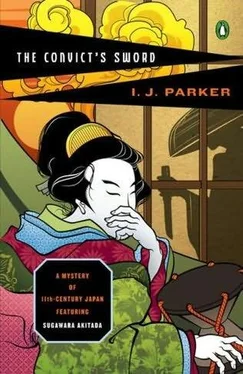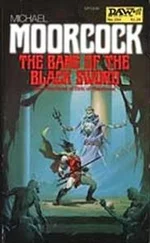I Parker - The Convict's sword
Здесь есть возможность читать онлайн «I Parker - The Convict's sword» весь текст электронной книги совершенно бесплатно (целиком полную версию без сокращений). В некоторых случаях можно слушать аудио, скачать через торрент в формате fb2 и присутствует краткое содержание. Жанр: Исторический детектив, на английском языке. Описание произведения, (предисловие) а так же отзывы посетителей доступны на портале библиотеки ЛибКат.
- Название:The Convict's sword
- Автор:
- Жанр:
- Год:неизвестен
- ISBN:нет данных
- Рейтинг книги:4 / 5. Голосов: 1
-
Избранное:Добавить в избранное
- Отзывы:
-
Ваша оценка:
- 80
- 1
- 2
- 3
- 4
- 5
The Convict's sword: краткое содержание, описание и аннотация
Предлагаем к чтению аннотацию, описание, краткое содержание или предисловие (зависит от того, что написал сам автор книги «The Convict's sword»). Если вы не нашли необходимую информацию о книге — напишите в комментариях, мы постараемся отыскать её.
The Convict's sword — читать онлайн бесплатно полную книгу (весь текст) целиком
Ниже представлен текст книги, разбитый по страницам. Система сохранения места последней прочитанной страницы, позволяет с удобством читать онлайн бесплатно книгу «The Convict's sword», без необходимости каждый раз заново искать на чём Вы остановились. Поставьте закладку, и сможете в любой момент перейти на страницу, на которой закончили чтение.
Интервал:
Закладка:
A small voice demanded, “What’s the matter, Tora?”
Tora gulped and managed a smile for Tomoe’s daughter. “I’m hungry. What about you? Shall we go sample the noodles?”
“Oh yes. Please.”
They parted from the fortune-teller and walked across to the restaurant where Tora had last entertained their mother’s killer. The thought sickened him, but he ordered three bowls of the special noodles and felt better when he saw the children eat hungrily. No point in troubling them with the story of their mother’s murder, but he could not wait to lay his discovery before his master.
Akitada was anxious about the children and went home early. To his relief, Tora had just returned with them. Akitada’s lack of confidence made him doubt such luck, and he looked them over, touched them, and asked them questions before speaking to anyone else. He found them subdued, but they were such nice children, so handsome and well-spoken, that their composure in the face of their own loss was a lesson to him.
Tamako hovered nearby, and Seimei also. Their eyes were moist with emotion. There were children in the house again.
Tora, a fierce and exultant look on his face, pulled Akitada out into the corridor and closed the door. “I know who did it,” he said, “but I don’t think we should tell them.”
“What are you talking about?”
“I know who killed Tomoe. I figured it out. Remember the beggar in the market? Remember how filthy he was? Well, Nobunari says his mother complained about some stinking beggar pestering her and stealing her money. I think the bastard saw Kata give her a piece of silver and followed her home that evening.”
Akitada thought about it. He did remember the beggar who had felt his robe and called Tomoe a whore. It made sense: not revenge by Matsue, nor a plot by Yasugi against the Tomonari family, but a common everyday crime among the poor. “I think you’re right,” he said. “I should have seen it myself. You were certainly more observant. Only how are we to prove his guilt after all this time?”
Tora blushed at the compliment. “No need to prove it. The filthy bastard’s dead. Kata took care of him when he found out that the beggar had killed his good luck.” Tora sighed. “I should’ve walked her home that night.”
“It was more my fault than yours, because I would not let you. But I think you must let the police know. I want your name cleared once and for all, and they have the means to round up Kata and his men to get proof that the beggar killed Tomoe. We don’t even know his name.”
Tora’s face fell comically, but then he grinned. “Good. That’ll give me the chance to tell that patronizing bastard Ihara that I’ve solved his miserable case for him.”
Akitada spent the rest of the day with his family and young guests. He watched his wife fuss over the children as if she were their mother. She saw to it that they were bathed, measured them for new clothes, brushed Nobuko’s hair and tied it with one of her ribbons, and asked them what their favorite foods were.
He wondered if she, too, needed to fill the emptiness in their home and in her heart. Perhaps her coldness had been a matter of preserving a hard-won outer calm. When Haseo’s little daughter made an amusing comment, he found himself smiling at Tamako and was foolishly glad to see her smile back.
They had not begun to grieve, and there were still many unresolved matters between them, but time and effort might change that. Perhaps some day there might be another child, and they could build a new life together. Akitada accepted that the fault had been his more than Tamako’s. He did not know if he could change his nature, but at that moment he made a silent promise that he would try to be a better husband.
There was one more task to be done. After the evening rice, Akitada went to get Haseo’s sword and, with a formal bow, he placed it into Nobunari’s hands. “This was your father’s,” he said, deeply moved by the moment. “It’s yours now, along with his title. And his lands will shortly be yours also. Make sure that you honor your father’s memory. He was a good and brave man. And watch over your father’s family so that none will ever go hungry or homeless again.”
The boy bowed. “Thank you, my lord. I promise. They are my family now.”
As Nobunari examined his father’s sword, Akitada thought how proud his parents would have been and felt a deep sadness for Haseo, who had died in a distant land and for Tomoe, who had sacrificed everything for her children. Nothing was certain in life but death. And yet, though brief and fleeting, life was full of possibilities.
Later he went to his room to be alone. Exhaustion after the past weeks had finally caught up with him, and he felt empty. Outside the open shutters, the sun was setting, casting a golden light over the garden. Somewhere, in a great distance, the evening bells began to ring. Another day had passed and darkness lay in wait. The nights ahead seemed endless, and desolation overwhelmed him.
Akitada walked onto the veranda. There was an extraordinary stillness in the air-almost a breathless waiting. He listened and then he understood. Yori’s spirit remained, here in this house, close to them for the forty-nine days after his death. After a moment of wonder, he went back inside for his flute.
In the slanting rays of the setting sun, Yori’s father stood in the garden and played the lullaby which had soothed his son’s suffering. And when the last note faded with the light, he told him of his pride and love.
HISTORICAL NOTE
The preceding novel takes place in eleventh-century Japan, toward the end of the Heian Age (794-1185 AD). The setting is the capital city Heian-kyo, which was founded in 794 and gave its name to the classical period in Japanese history and civilization. It was from here, from the Imperial Court and a centralized government by nobles, that the affairs of the nation were governed for three centuries of peace and tranquility.
Ancient Japan patterned its government and institutions after T’ang China, and the capital was laid out in the Chinese style as a perfect rectangle with a grid pattern of streets running due north, south, east, and west. As in the Chinese capital Ch’ang-an, the Imperial Palace with the government buildings (the Daidairi, or Greater Palace Enclosure) occupied its own city in the northernmost center and, along with the surrounding mansions of the nobles, took up almost a third of the whole area. The capital stretched over 6000 acres and is said to have had as many as 200,000 inhabitants at times. It was not fortified, but earthen ramparts and moats surrounded it, and gates stood at major entrances. Of these, Rashomon, the southern-most gate, was the most important and famous in Japanese literature. Suzaku Avenue divided the city into a Right Capital and a Left Capital, each half with its own administration, market, prison, and temple. The original layout was intended to impress foreign visitors, and the city must have been quite beautiful with its wide, willow-lined avenues, its many rivers and canals, parks and gardens, and great gates and palaces. But the Right Capital never fully developed. It soon fell into disrepair and became a haven for criminals. Furthermore, traditional building practices and materials, while they allowed for quick construction and deconstruction (whole palace buildings were moved from previous capitals to Heian-kyo), meant that the capital periodically suffered severe damage from fires, storms, and earthquakes.
Ancient Japan also took most of its culture from China. Ultimately, the Chinese system of government failed in Japan, but in the Heian age it still prevailed and produced a period of unparalleled peace and cultural achievement. The country was governed by a hierarchy of bureaucrats who ruled by Chinese precepts and used the Chinese language. However, the system was never a meritocracy as in China. In Japan only the sons of the “good people” attended the imperial university, entered the government service, and achieved the ranks which assured them of wealth and power. The highest ranks fell mostly to members of one family, the Fujiwaras. They supplied wives and concubines to the ruling monarchs and crown princes and thus were not only closely related to the emperors, but served as regents (and de facto rulers) to the many minor children who ascended the throne. The chancellor, assisted by the three great ministers of the right, left, and center, supervised the Great Council of State, two controlling boards, eight ministries, and assorted bureaus and offices. From the Greater Palace Enclosure of Heian-kyo, this central government ruled the rest of the country through governors appointed in the capital and sent to their provinces for four-year terms.
Читать дальшеИнтервал:
Закладка:
Похожие книги на «The Convict's sword»
Представляем Вашему вниманию похожие книги на «The Convict's sword» списком для выбора. Мы отобрали схожую по названию и смыслу литературу в надежде предоставить читателям больше вариантов отыскать новые, интересные, ещё непрочитанные произведения.
Обсуждение, отзывы о книге «The Convict's sword» и просто собственные мнения читателей. Оставьте ваши комментарии, напишите, что Вы думаете о произведении, его смысле или главных героях. Укажите что конкретно понравилось, а что нет, и почему Вы так считаете.












